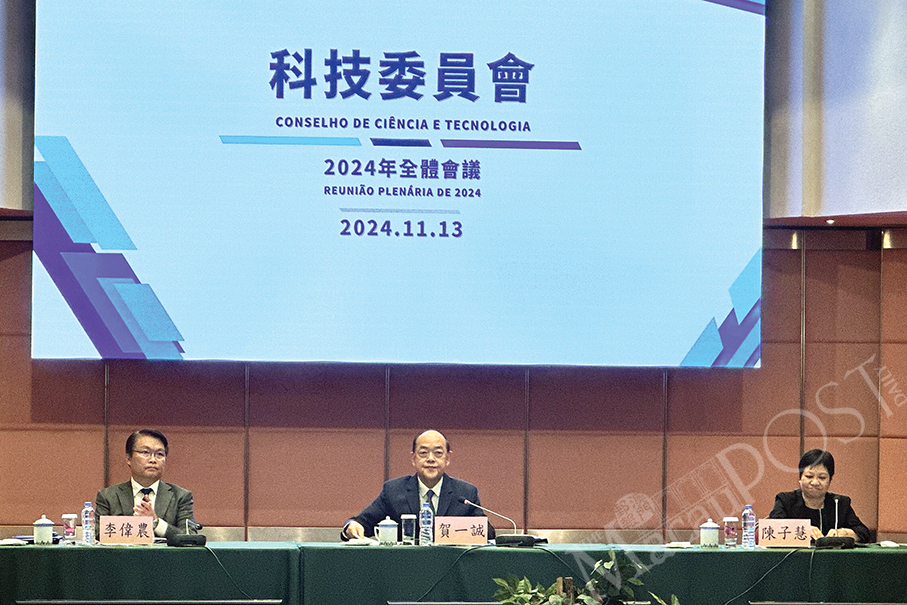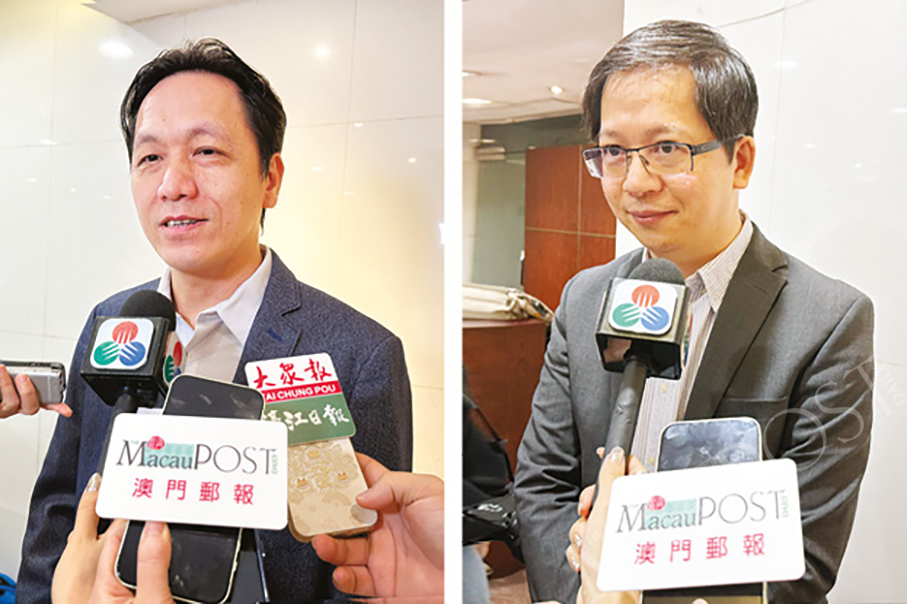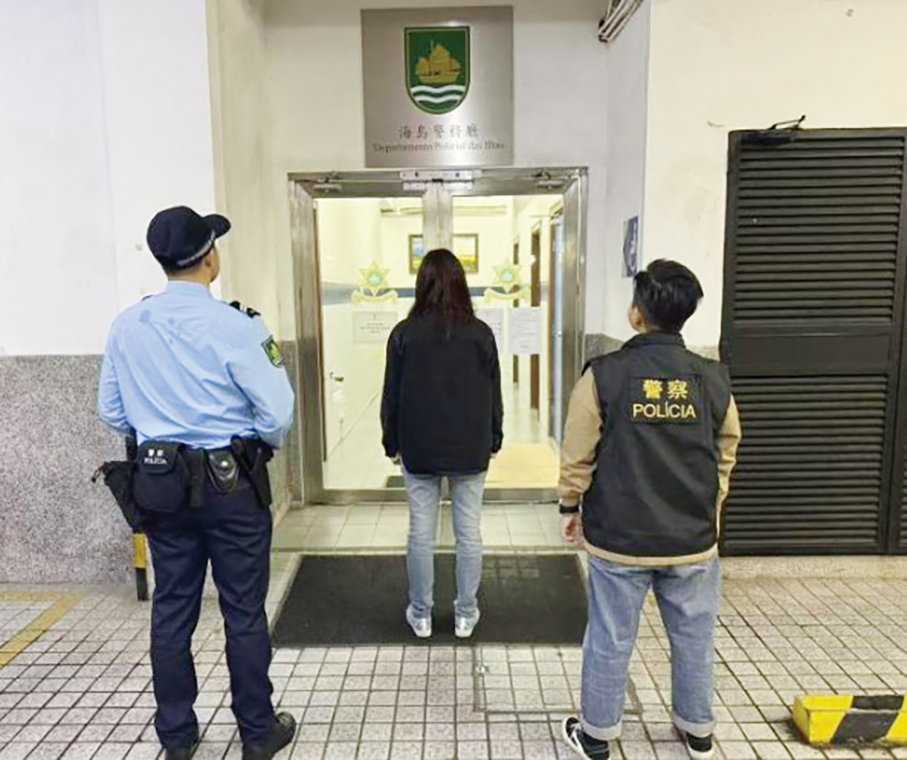Chaired by Chief Executive Ho Iat Seng, the government-appointed Science and Technology Committee held its annual plenary meeting yesterday at the World Trade Centre Macau (WTCM) in Nape, during which 13 fellow members put forward more than 70 written opinions on promoting the development of sci-tech, deepening cooperation between colleges and enterprises, facilitating the acquisition and cultivation of scientific and technological talents, and strengthening the ties between Macau and the Guangdong-Macau In-Depth Cooperation Zone in Hengqin.
Yesterday’s meeting lasted for about two and a half hours, during which the media could only listen to the chief executive’s opening remarks, while the rest of the meeting was held behind closed doors.
In his opening remarks, Ho pointed out that in defining specific objectives, major tasks and key projects of the local government’s “1+4” diversified industrial development, “the government is strengthening efforts to further improve Macau’s sci-tech innovation system, while optimising the environment for innovation, with the objective of using the high-tech industry as an entry point to accelerate the implementation of its ‘1+4’ appropriately diversified development strategy.”
According to previous statements by the local government, the “1+4” strategy aims to reinforce Macau’s function as “One Centre” for integrated tourism and leisure, officially known as the World Centre of Tourism and Leisure, while facilitating the development of four emerging industries: big health; modern financial services; high-tech; and conventions, exhibitions, sports, and the commercial and trade industries.
Emphasising the importance of technological innovation as the cornerstone of social development, Ho said that as an “important” node of the technology and innovation corridor in the Guangdong-Hong Kong-Macau Greater Bay Area (GBA), coupled with the advantages of the in-depth cooperation zone and national policies, as well as Macau’s scientific research achievements in the fields of integrated circuit design and traditional Chinese medicine (TCM), the local government will, in accordance with the central government’s decision to deepen reform comprehensively to advance Chinese modernisation, accelerate the development of new-quality productivity, while giving full play to the advantages of the “One Country, Two Systems” principle in building a “highland for international high-end talents”.
He added: “In particular, making good use of the special status and unique advantages of ‘enjoying strong support of the motherland and being closely connected to the world’, accumulating and summing up the valuable reform experience in the process of Macau-Hengqin integration, expanding China-Portuguese-speaking countries’ sci-tech exchanges and cooperation, promoting industry-academia-research collaboration and the transfer of achievements, and perfecting the mechanism for cross-border circulation of innovative factors”.
In addition to building an efficient platform for technological cooperation through the introduction of quality technology and innovation projects and resources, Macau, according to Ho, can also integrate itself with Guangdong’s solid industrial foundations according to local conditions, helping the Greater Bay Area become an important source of new quality productivity and an “energy storage” site for the whole country and, at the same time, promoting the diversified development of Macau’s industries.
About 20 opinions implemented in past 2 years
Meanwhile, speaking to the media after the meeting, Wong Su Chin, a member of the committee, said that Ho summarised at yesterday’s meeting more than 70 written opinions put forward by 20-odd fellow members over the past two years, of which about 20 have been gradually implemented, with the themes revolving around the city’s four new key industries, including TCM, high-tech and integrated circuits, adding: “Examples can be seen in the support given by the Economic and Technological Development Bureau (DSEDT) to [small- and medium-sized] enterprises, the progressive liberalisation of the city’s telecommunications market, infrastructure investment, the launch of investment attraction measures, and the increased budget of the Science and Technology Development Fund by about 20 percent”.
He also referred to the views expressed by his fellow members at the meeting on artificial intelligence (AI), saying that the government was currently planning to convert the Concordia Industrial Park in Coloane into an investment spot for the AI industry.
Concerning the telecommunications industry, Wong said he expected the government to coordinate the planning and allocation of resources to boost the chances of Macau’s young generation to develop their careers in the GBA’s nine mainland cities, while also opening up more types of telecommunications licences for qualified enterprises to participate in information technology (IT) development.
Another member, Mak Pui In, told reporters he believed that Hengqin could support some of the development opportunities for Macau in the future while, in terms of technology, bringing more employment and development opportunities to young locals, adding that there are 60 to 70 enterprises operating in Hengqin with a total annual output value of integrated computer design already reaching four billion yuan, which could be seen as a highly incremental innovation drive.

Secretary for Economy and Finance Lei Wai Nong (from left to right), Chief Executive Ho Iat Seng and Economic and Technology Development Bureau (DSEDT) Acting Director Chan Tze Wai address the government-appointed Science and Technology Committee’s plenary meeting yesterday at the World Trade Centre Macau (WTCM) in Nape. – Photo: Yuki Lei

Science and Technology Committee member Wong Su Chin (left) and fellow member Mak Pui In speak to reporters after yesterday’s 2 ½-hour closed-door meeting.









